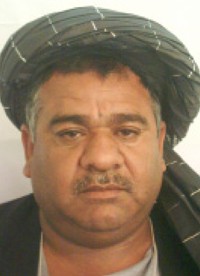By Killid Correspondents
Being powerful in Afghanistan does not only mean that you can break the laws of government. It also means that you can abuse your fellow citizens in the most awful ways and never be punished.

Anisa, twelve, sits weeping next to her crying father. Anisa was gang-raped by five men some months back. “I want the criminals to be hung,” she says weeping. Child rapes have risen sharply in recent years, according to Afghanistan’s Human Rights Organisation (AHRO), which claims most of the sexual assaults are carried out by government officials and other powerful men.
The rich and powerful in Afghanistan are known to rape women and young girls with impunity. The government's inability to stop these horrors have only encouraged those in positions of authority to continue abusing Afghanistan's most vulnerable.
Last year, the son of a member of the Afghan National Assembly raped an eight-year-old girl. On the basis of Afghan law, he should have been severely punished.
But the victim's family claims that the rapist had connections with local authorities. Rather than submitting to punishment, he was able to have his tazkira (ID card) illegally altered, making him younger than he actually was and ineligible for a rape charge. This change allowed him to avoid being punished for the crime the girl's family says he committed.
Mooneseh Rahimi of the Law Institute of Kabul, says this happens all the time.
One particularly chilling incident occurred when gunmen in Samangan province raped a woman and were sentenced to eight years in jail for the crime. Yet the men served less than a year after being released by a local judge. "Her husband said that they would not be able to continue their lives in the district, given the shame the family had endured. The judge suggested that they move."
These attitudes by Afghanistan's judiciary have only encouraged violence against women by powerful people.
Two months ago, a woman and her daughter were raped by a powerful local commander. This powerful man warned her husband, who is a teacher, to leave the village and find a new home, as soon as possible. When the man refused, the commander convened a jirga of local leaders, who sided with the commander and decided that the family should indeed move to another district.
Incensed, the man told the authorities that if the rape of his family was not punished in court, he would join the Taliban.

RAWA: Haji Payinda Mohammad is a heartless warlord in Sar-e-Pul province in Northern Afghanistan, who is now a member of parliament and enjoys immunity against his brutalities and crimes. His 17-year old raped 14-year old Bashira and was protected from punishment due to Payinda's power.
Residents of northern districts like Taher Youwaldish say that the reason the Taliban has been able to make inroads in the area is because of the weak and corrupt justice system. "The main reason for Taliban success in northern Afghanistan," says Noorullah Shahryar, of Mazar, "is the lack of law enforcement and the intimidation of local people by powerful individuals."
One example of this is the Afghan prison system. Last year, reports surfaced of sexual assaults on women by guards in Pulcharki Prison. The victims claimed that they were raped by their guards and some were impregnated. Charges were never brought against the guards.
The legal double standard appears in other strange ways. One girl, accused of having sex outside of marriage, managed to escape her home. Later, she was brought back to her district and a judge sentenced her to a year-and-a half in prison, though she denied ever having sex with anyone.
Political author Ahmad Saeedi says that powerful men in Afghanistan have always gotten away with crimes that the poor could not. He points to the example of traffic enforcement. "The powerful drive our streets and barely acknowledge the traffic laws," says Saeedi. "But imagine if the average driver violated the rules of the road. He would be fined by the police."
Karim, a taxi driver in Kabul is one such average driver. "If we stop our car in the wrong place, we have to pay a fine of 300 Afghanis (nearly 7 U.S.dollars)," he says. "But a powerful man in a nice car can park wherever he likes."
Last year, this immunity from traffic laws led to the deaths of five innocent pedestrians.
Powerful men in fast cars were speeding through the streets of Kabul when they struck and killed the pedestrians. The government ended up paying 100,000 Afs (2,027 dollars) to the families of the dead and 50,000 Afs (1,013 dollars) each to those injured in the accident.
It is shameful that the very people most in danger by these drivers - the Afghan tax-payers - are forced to pay for their reckless behavior.



